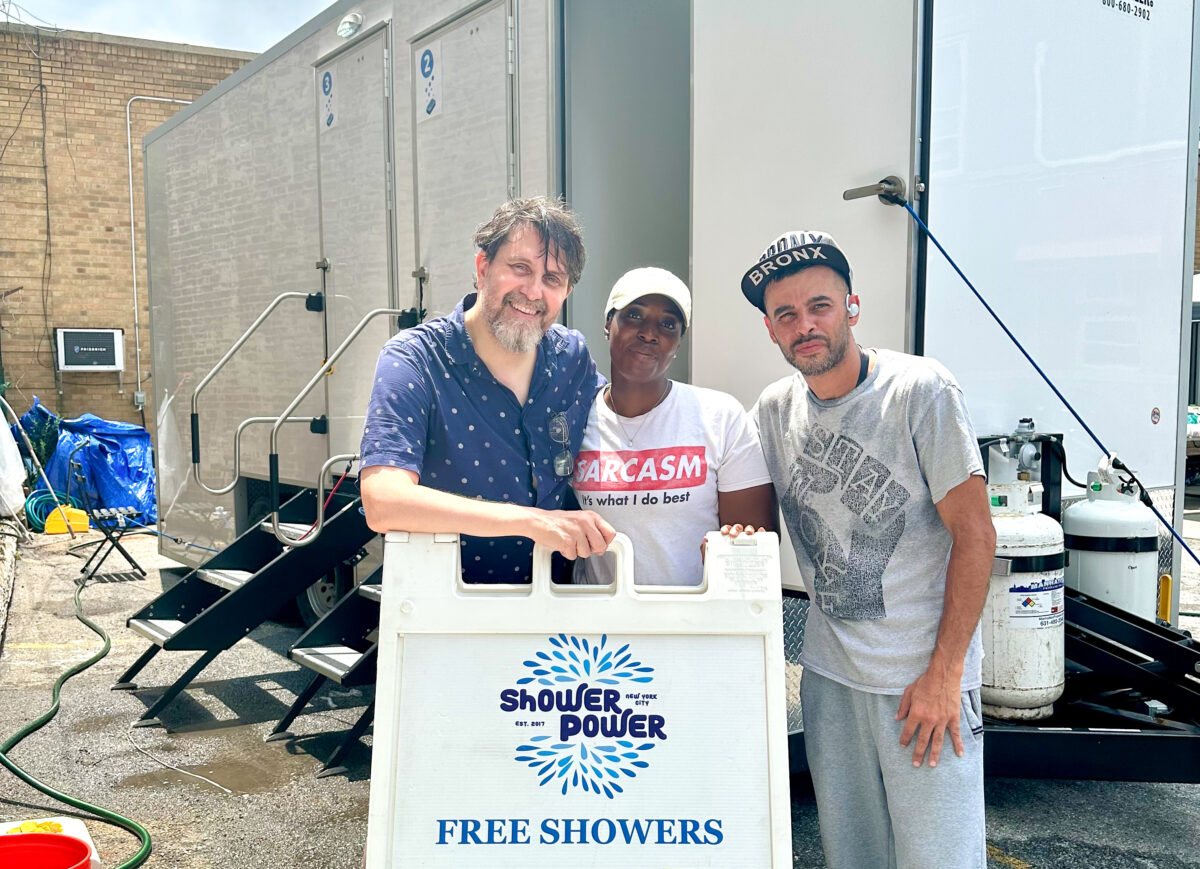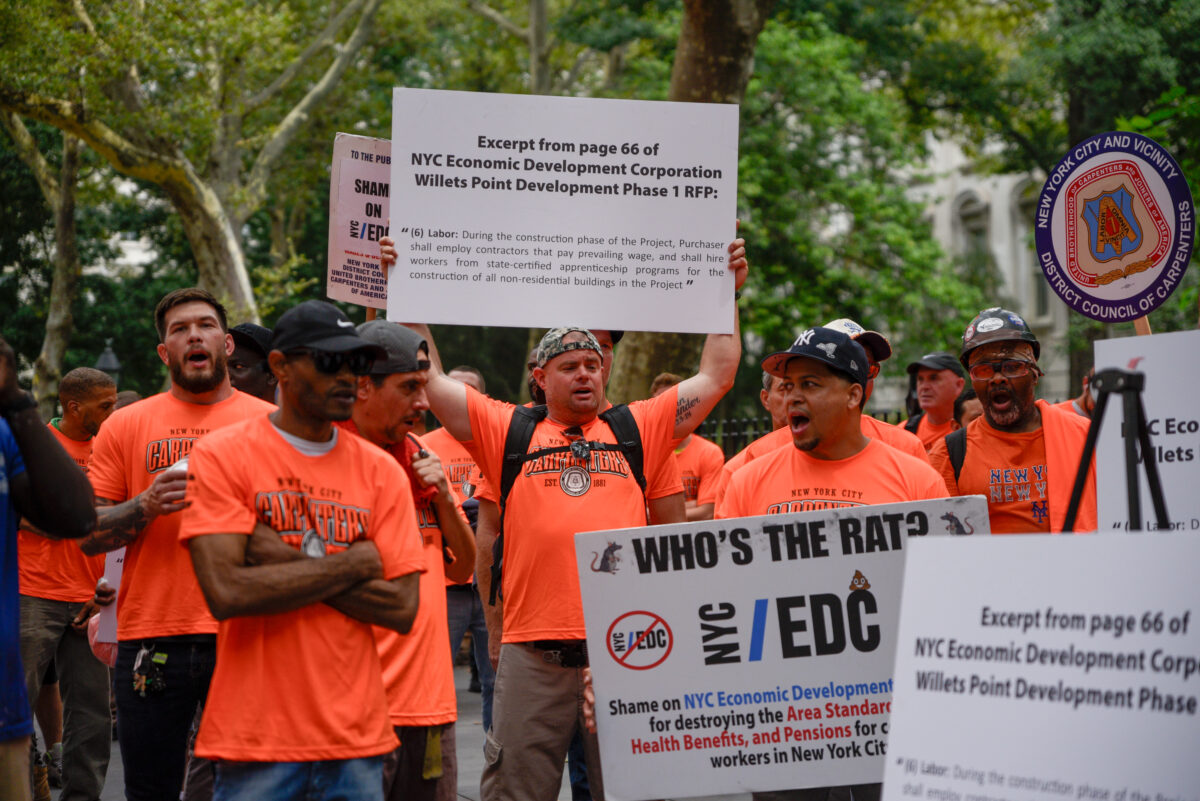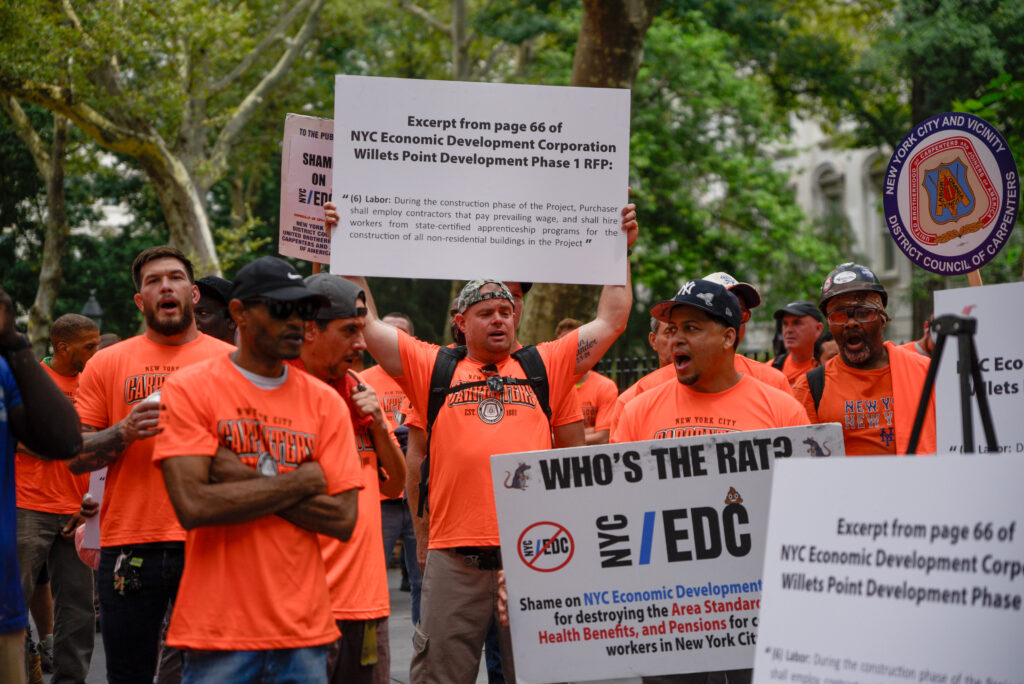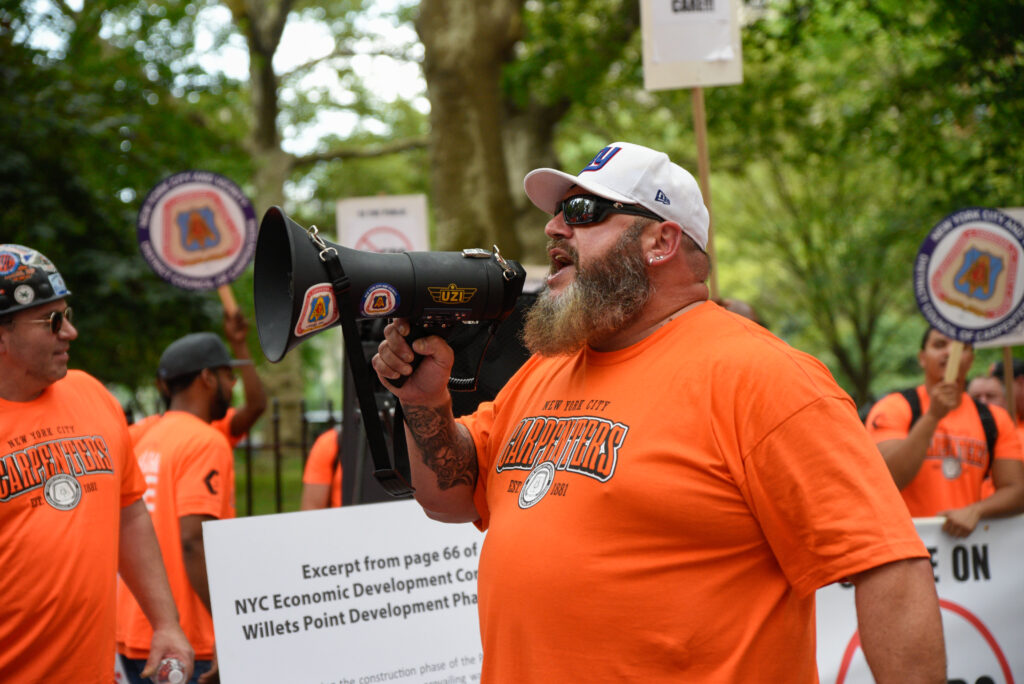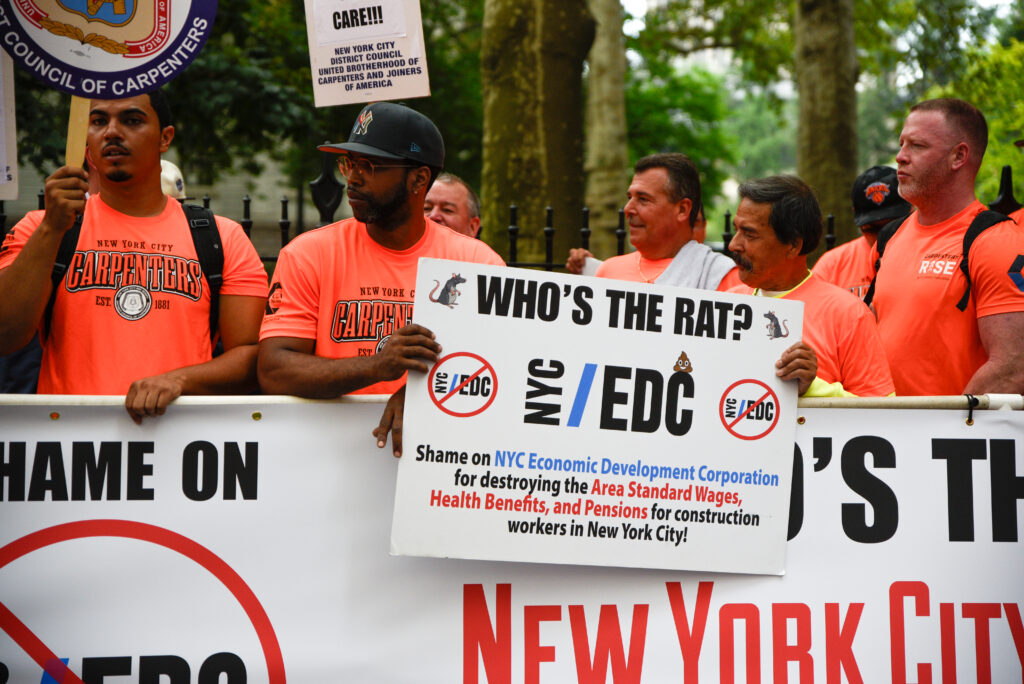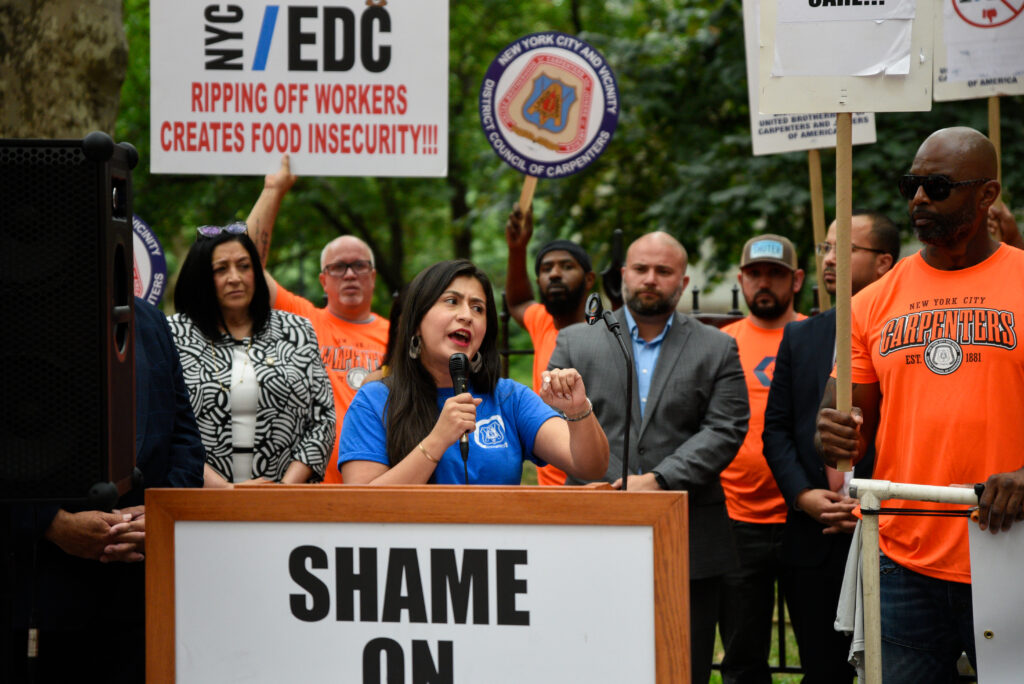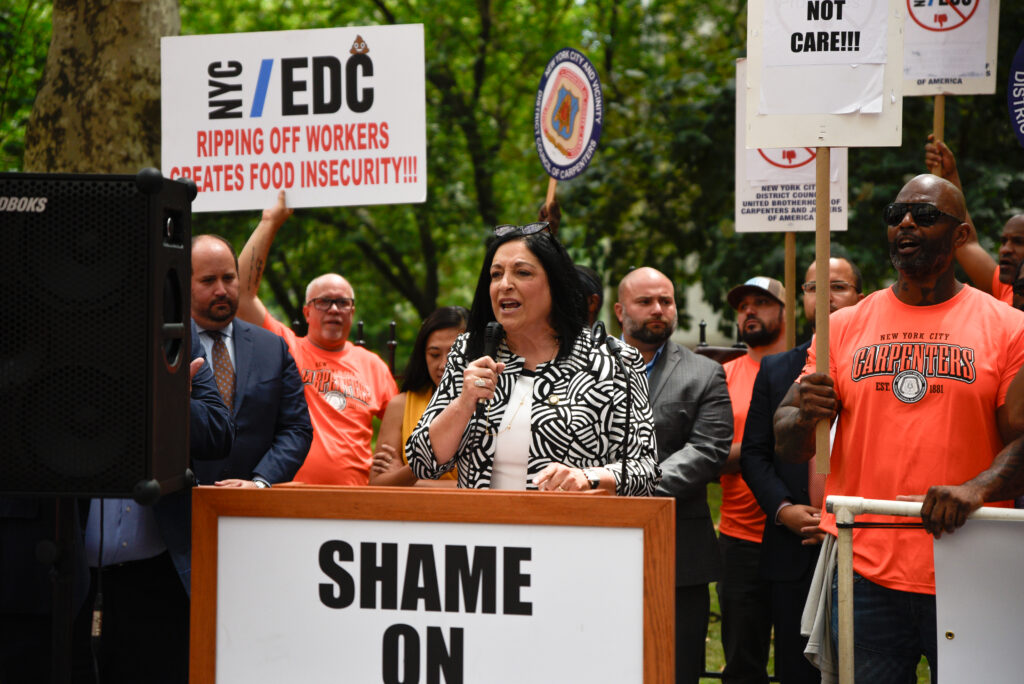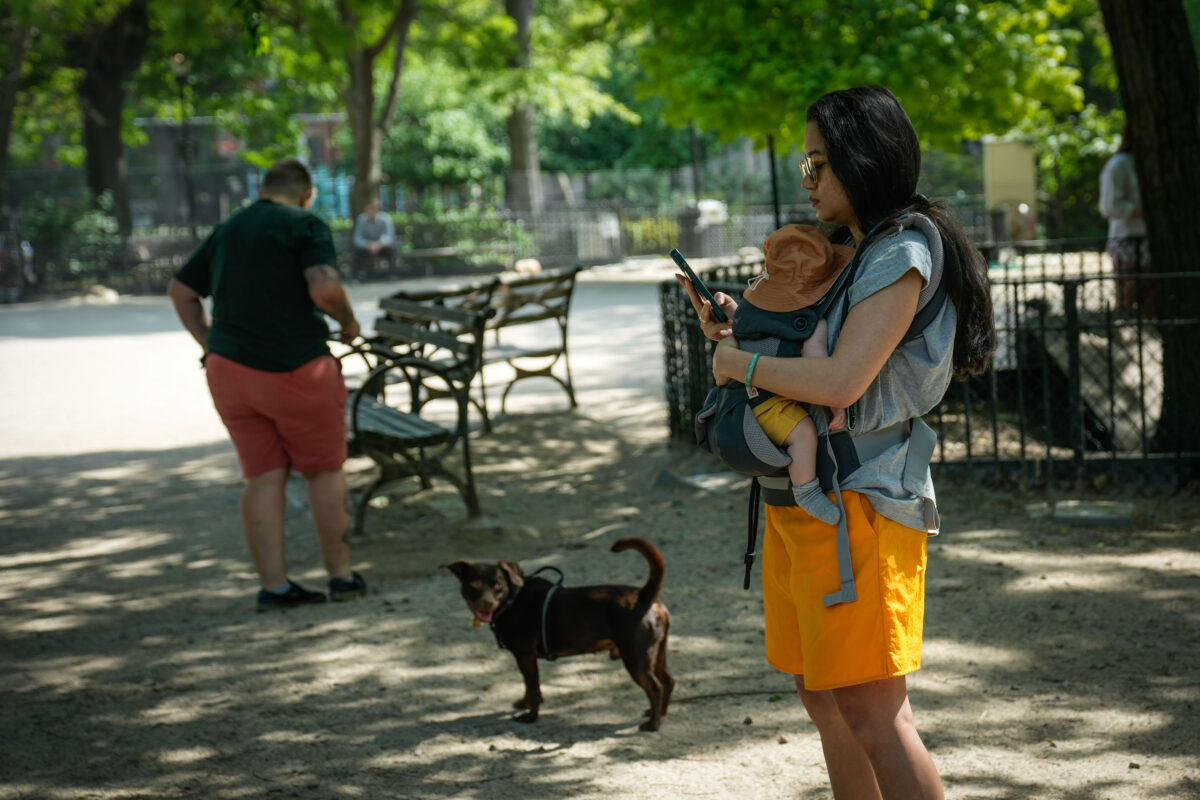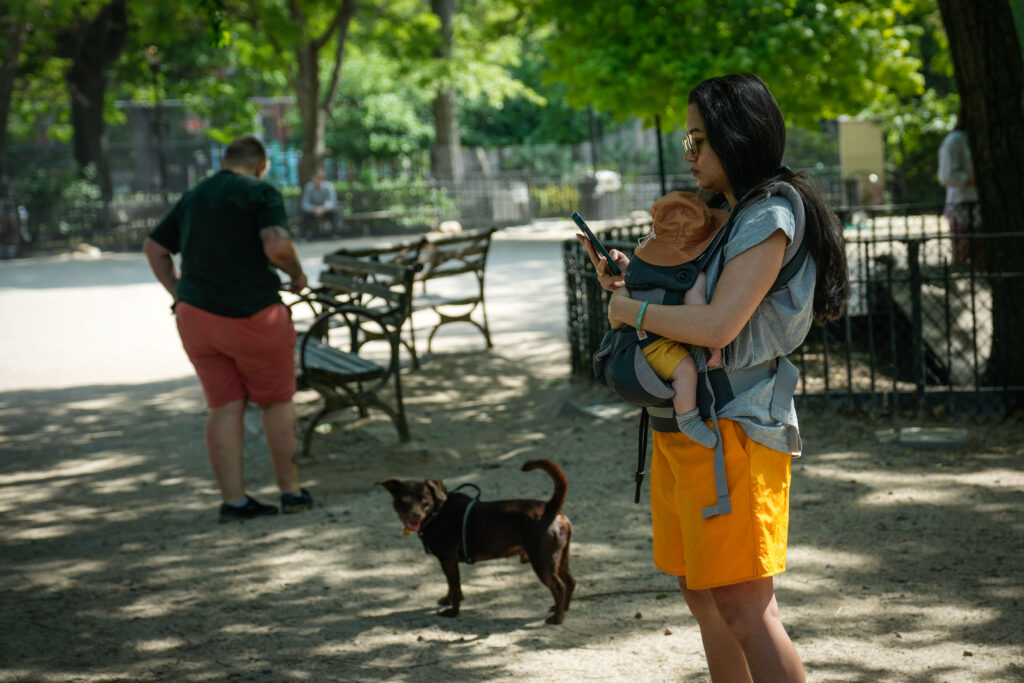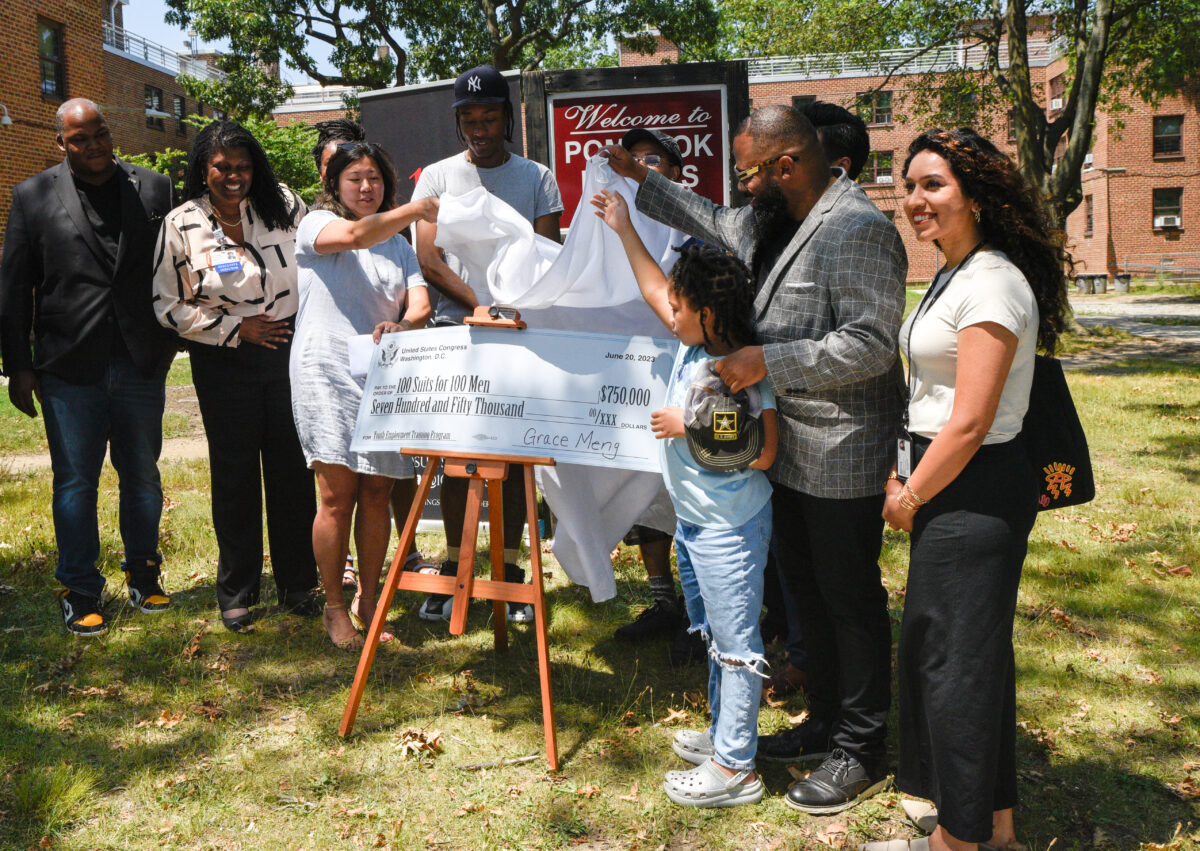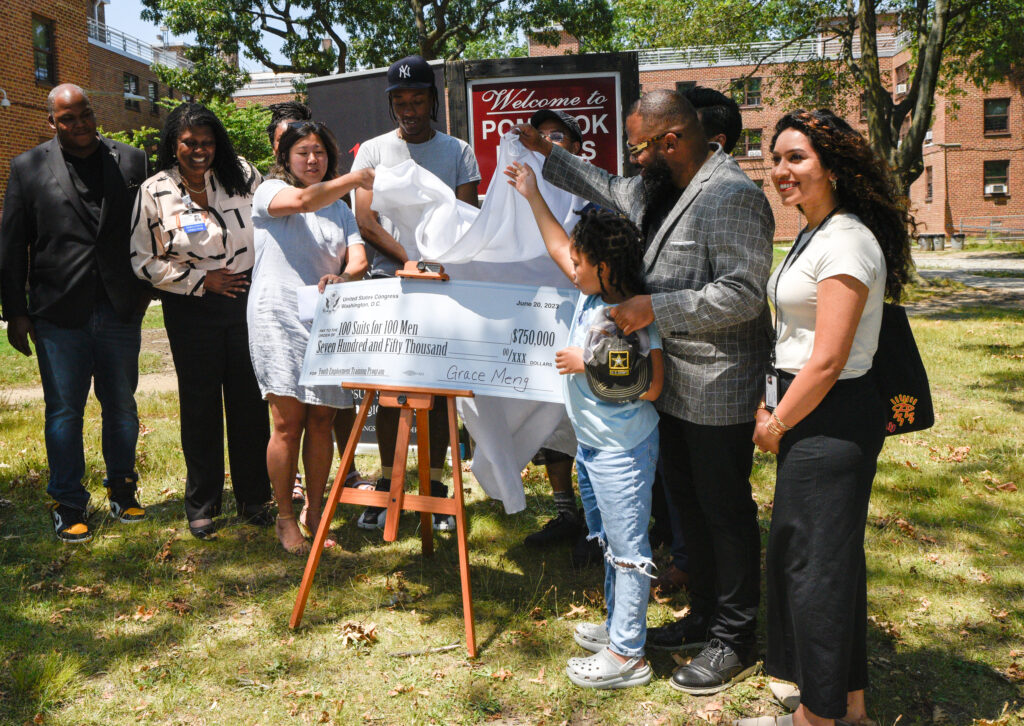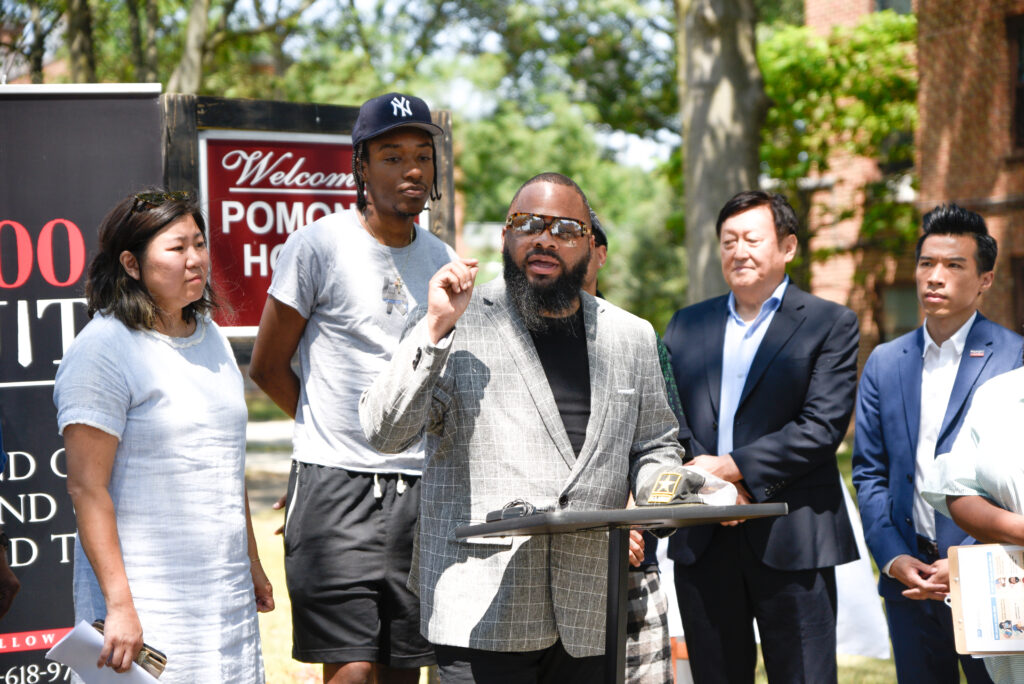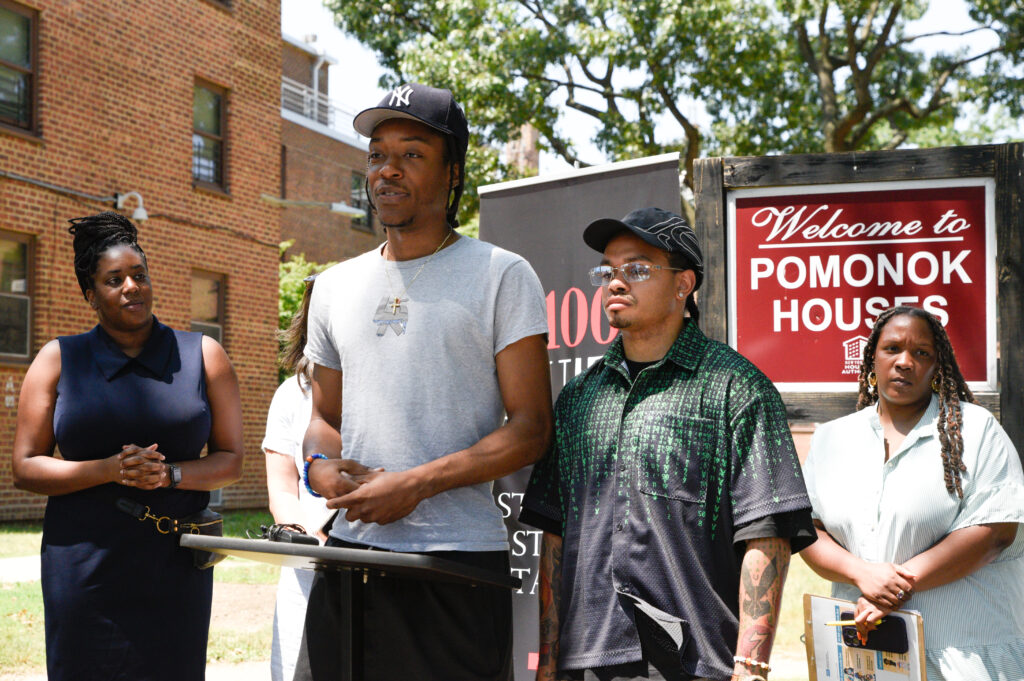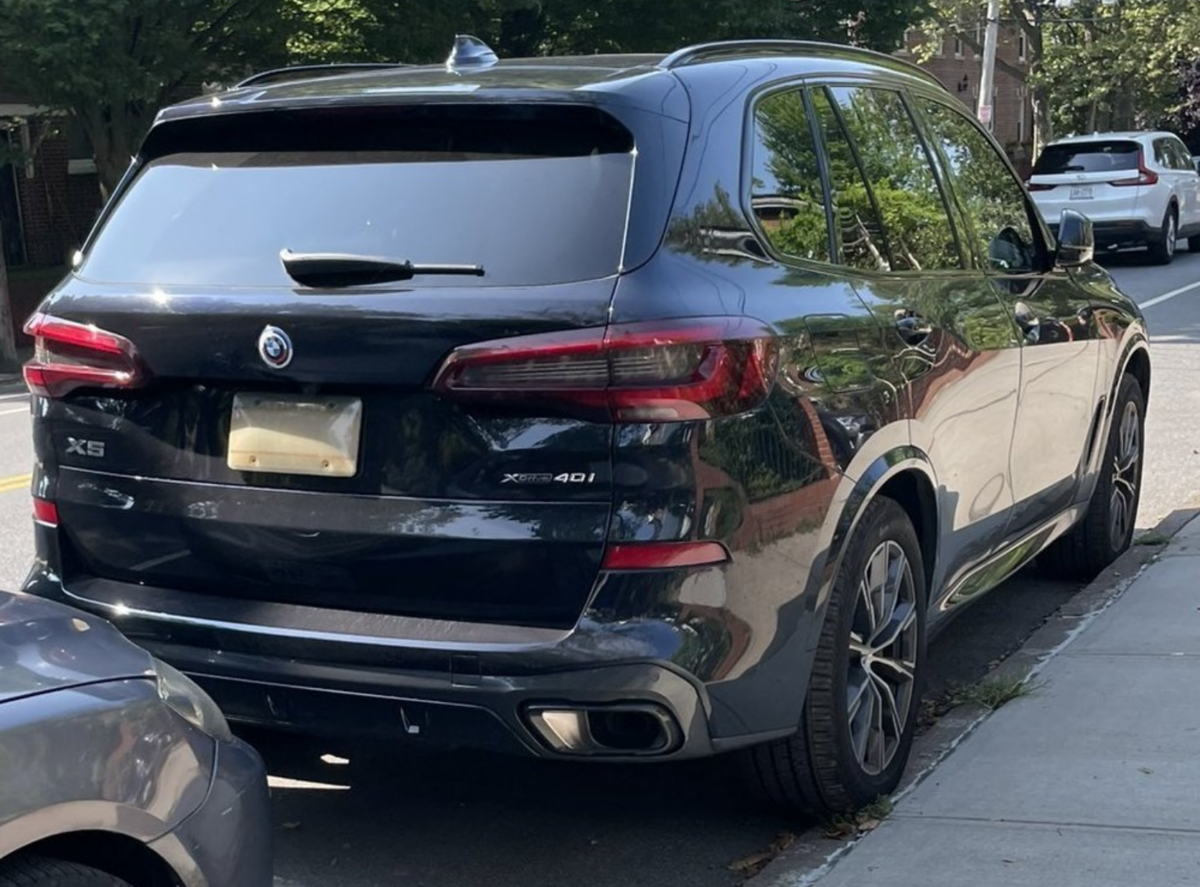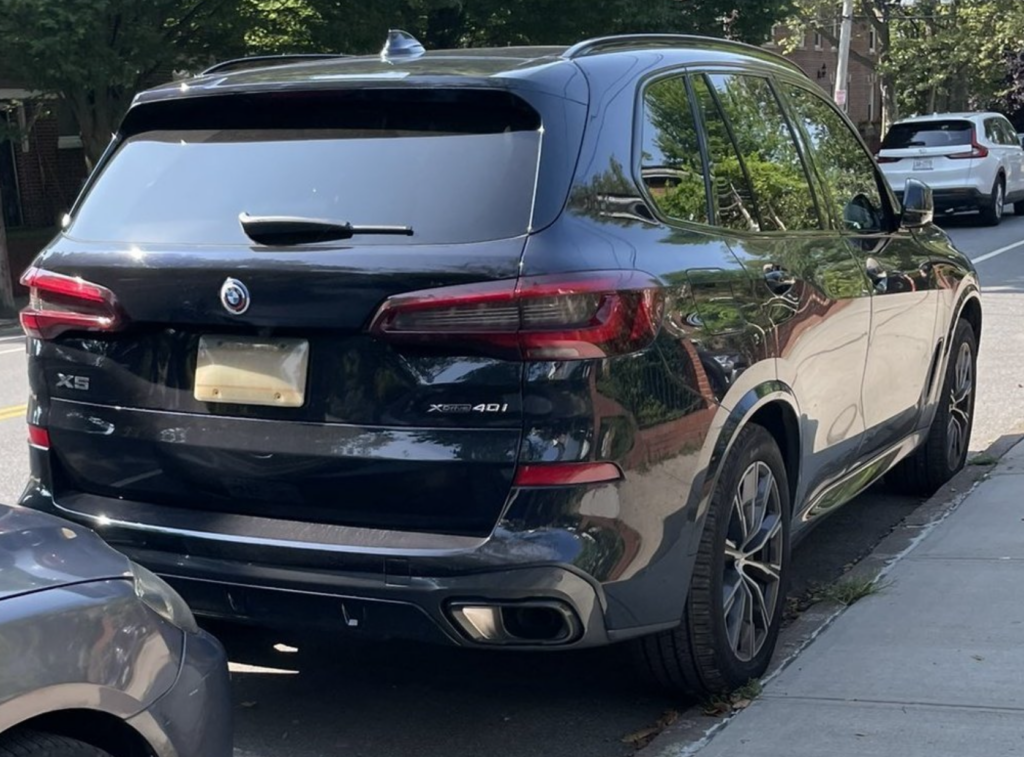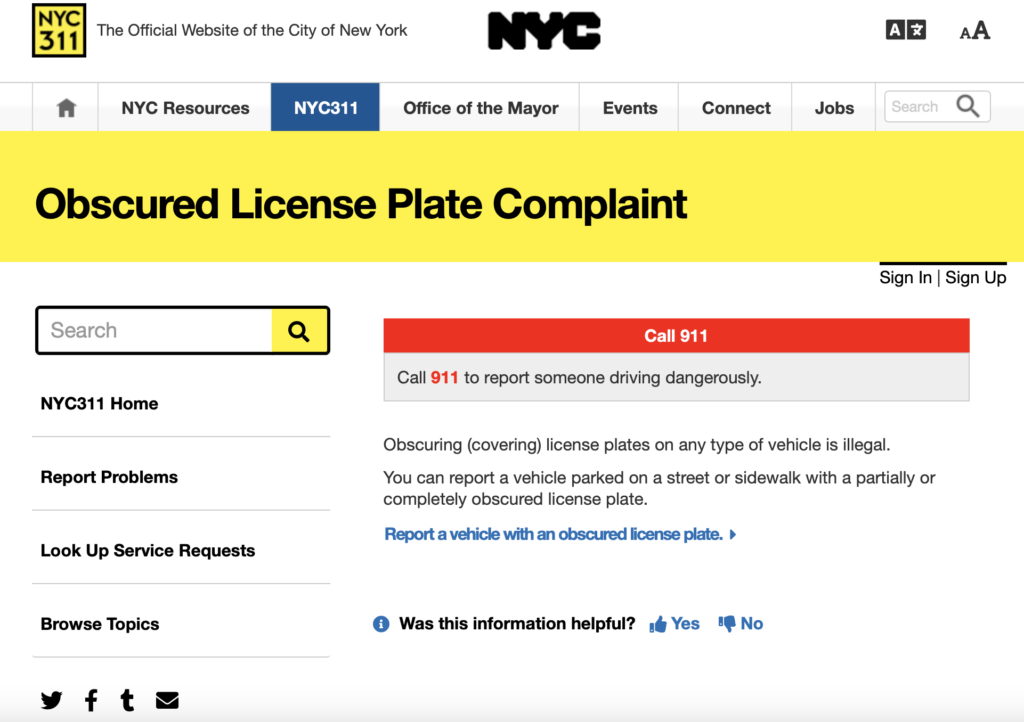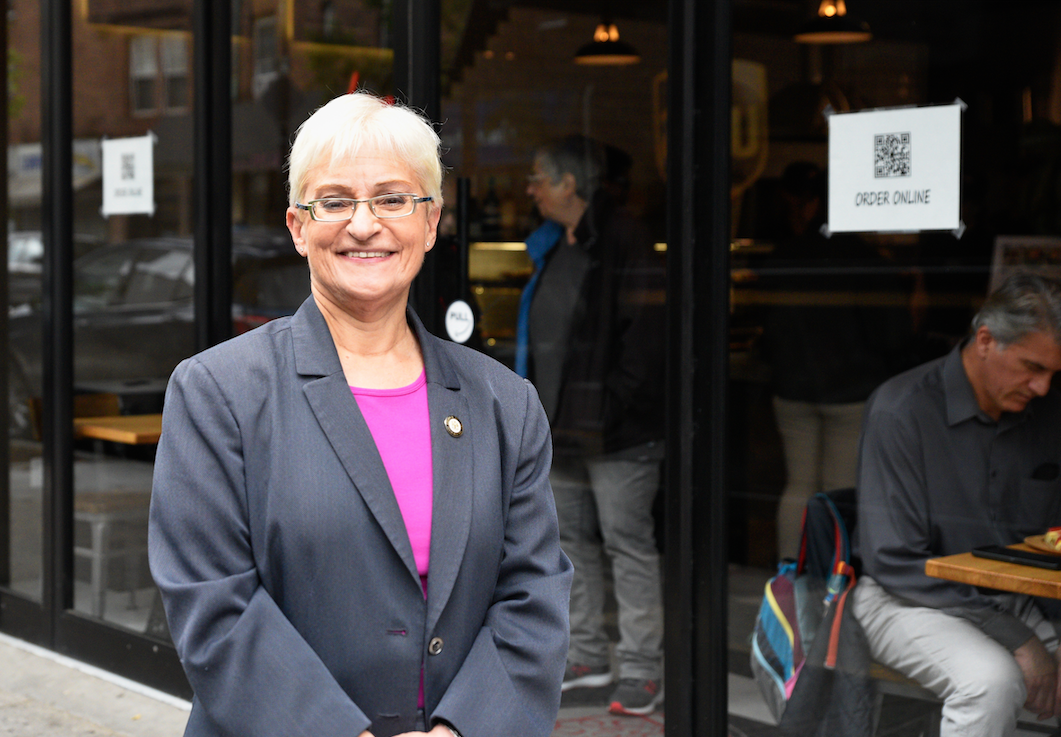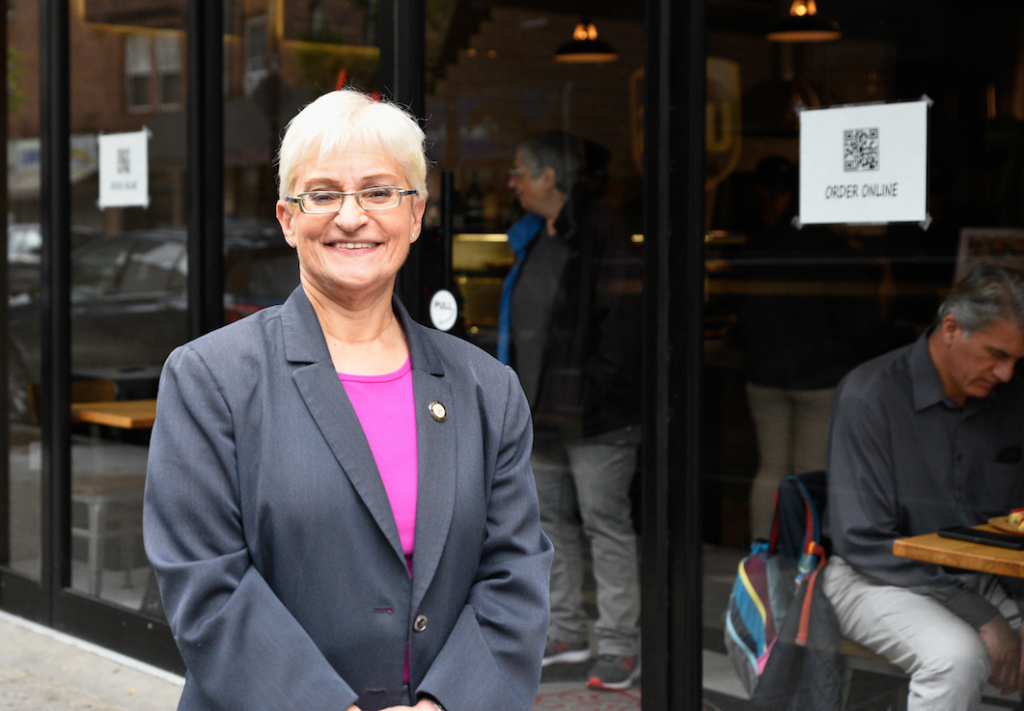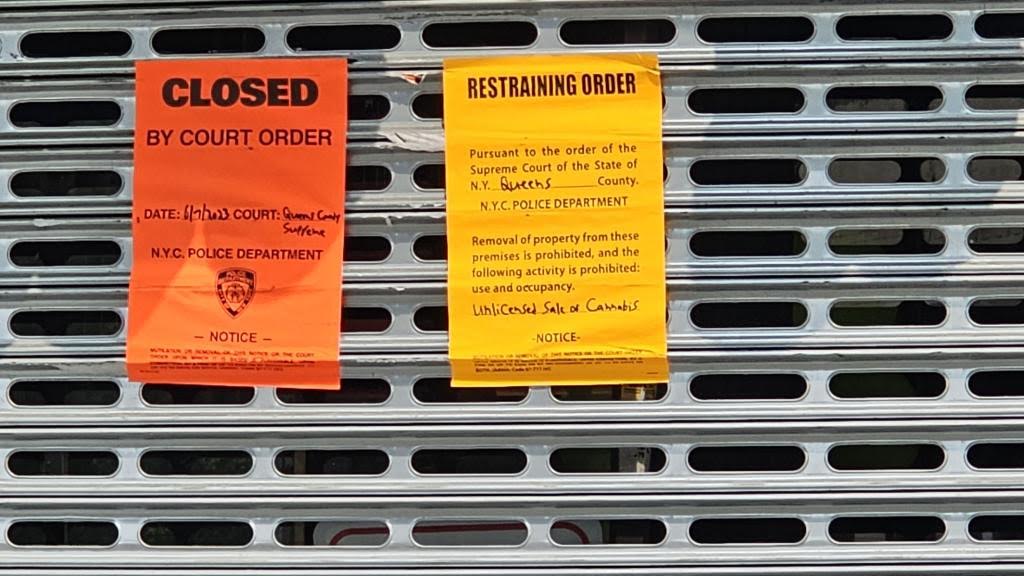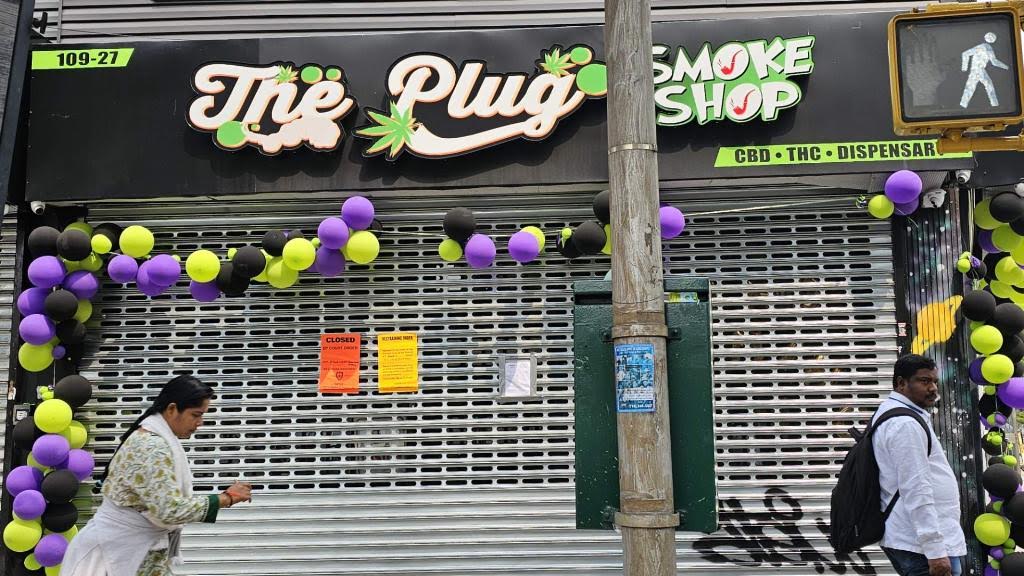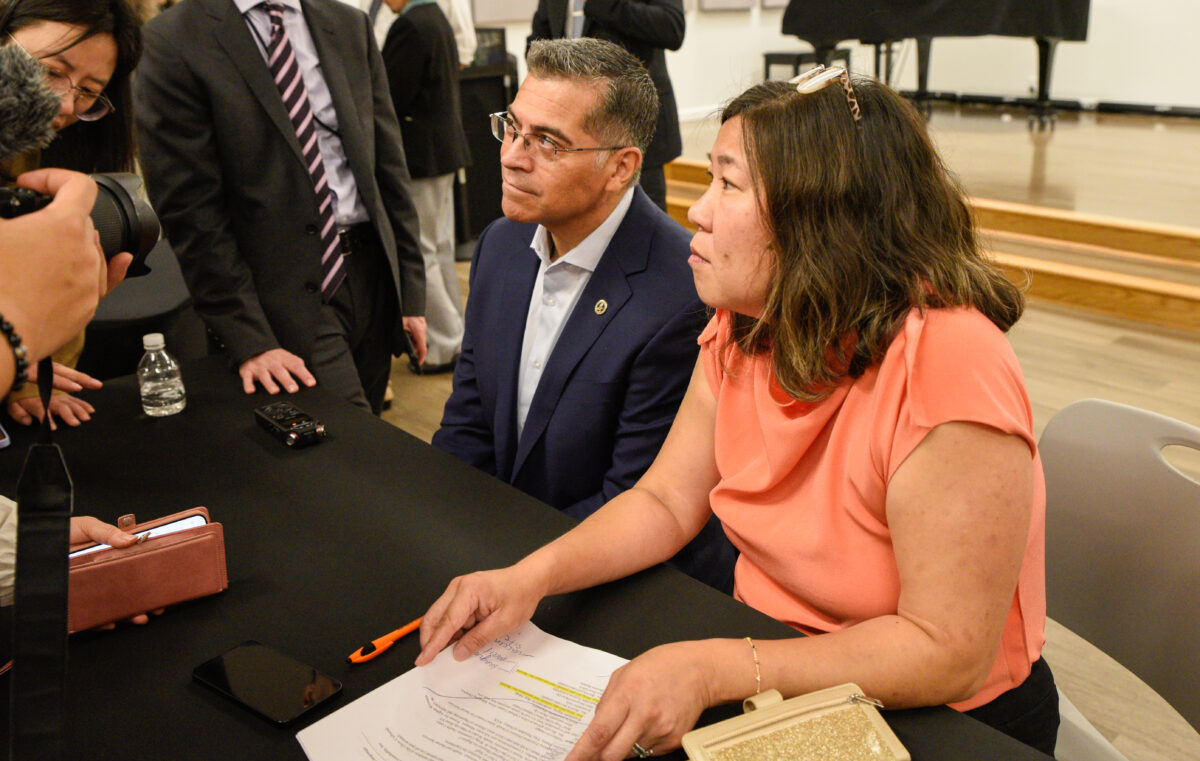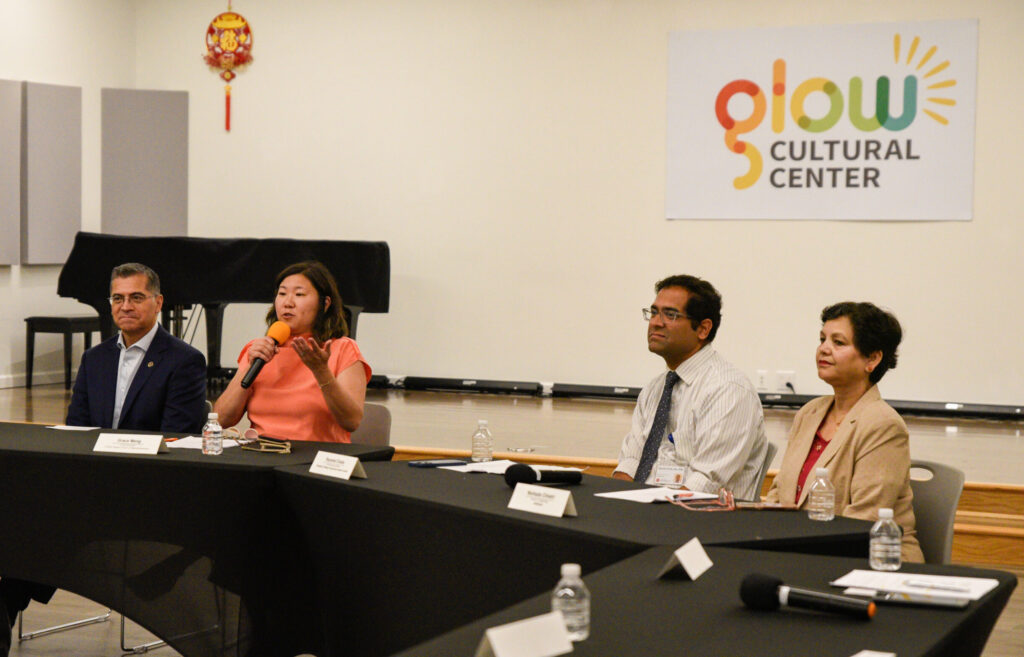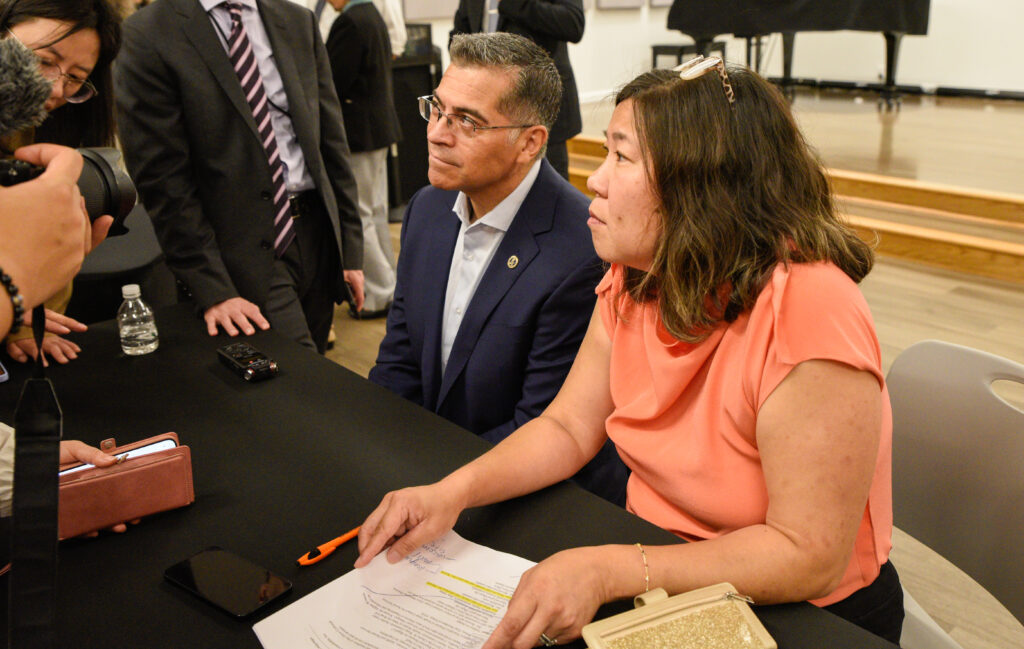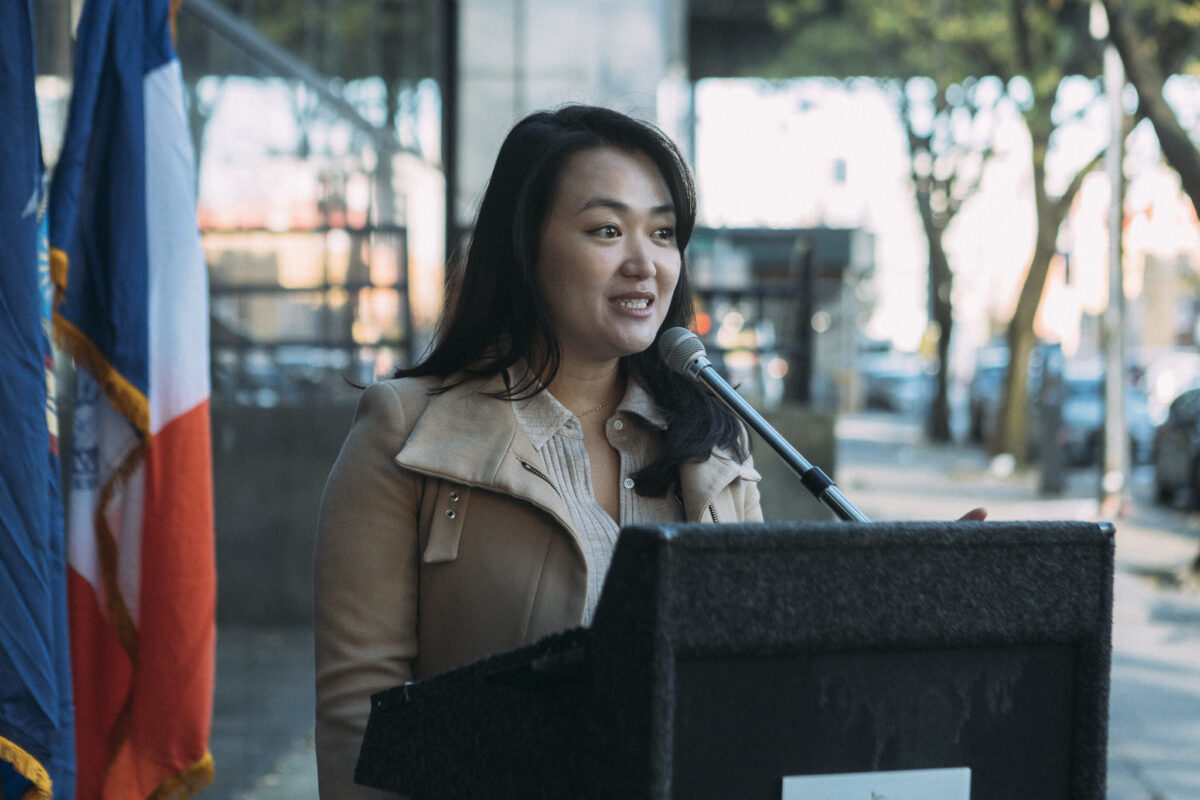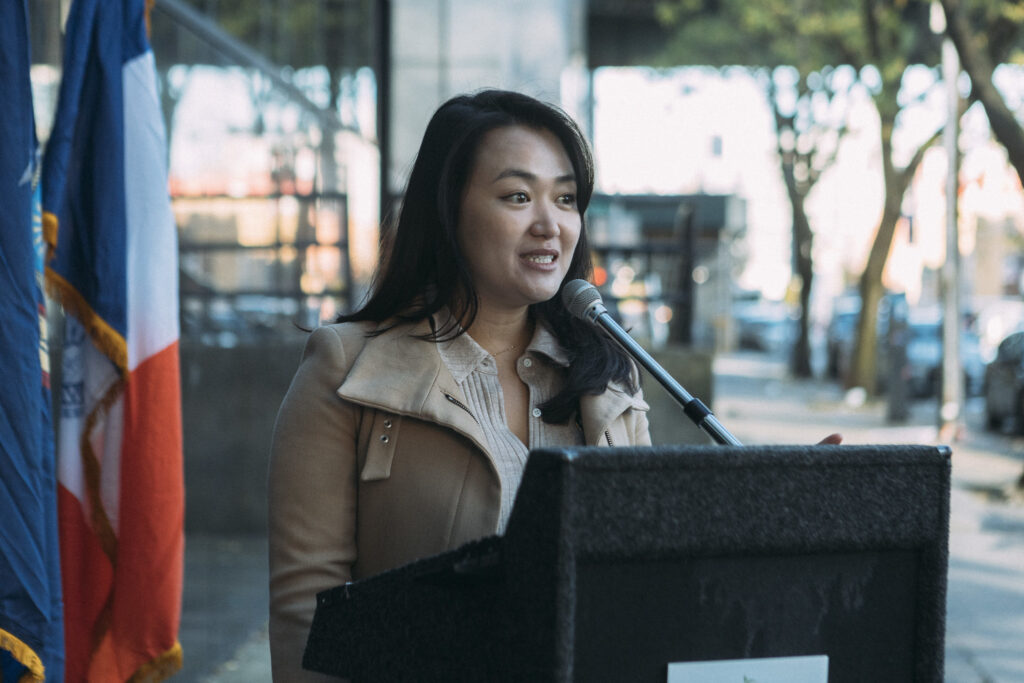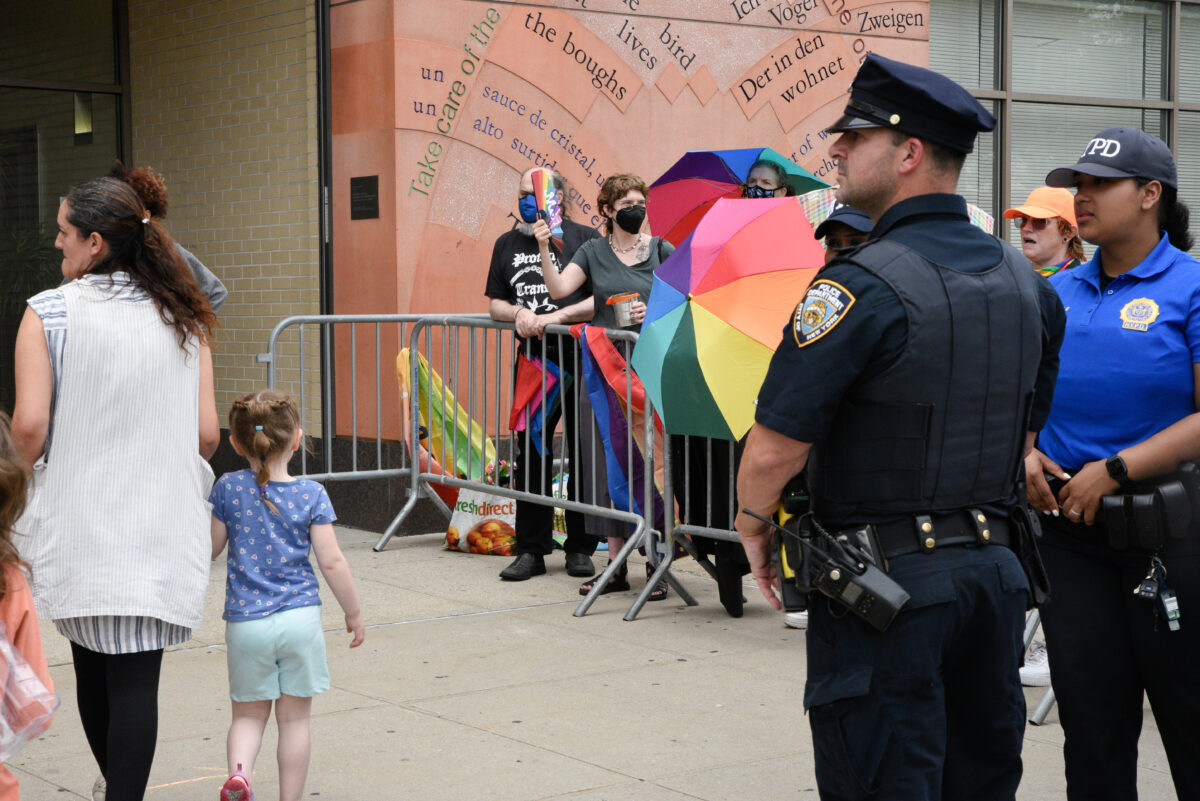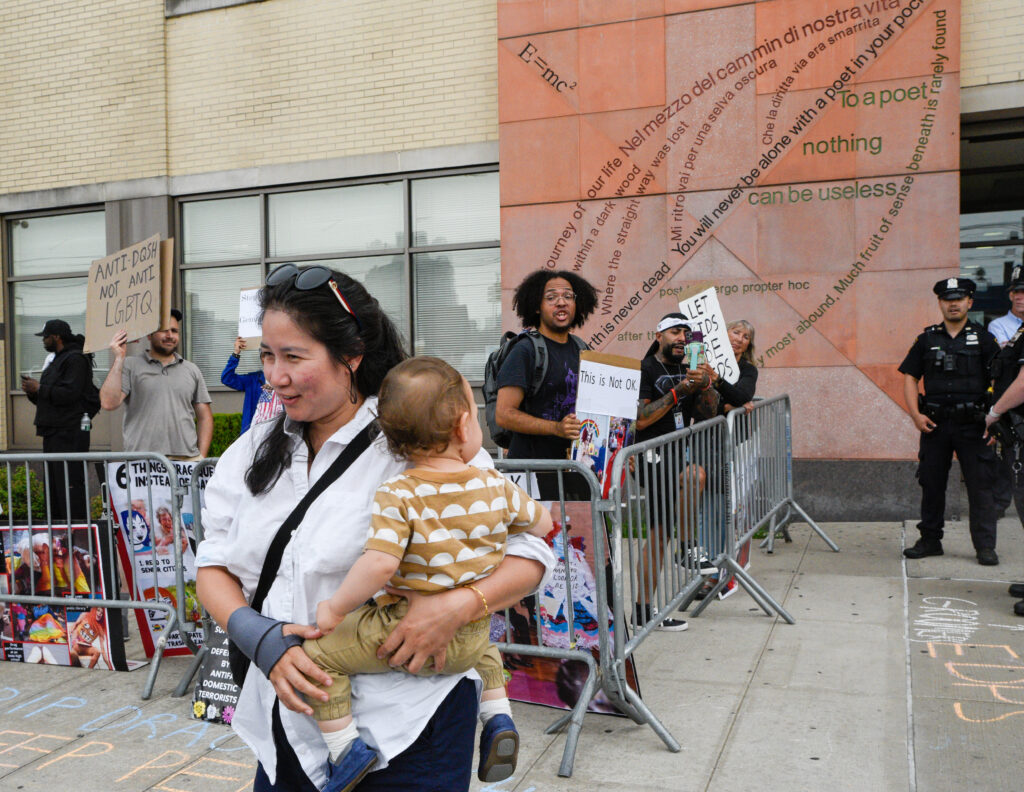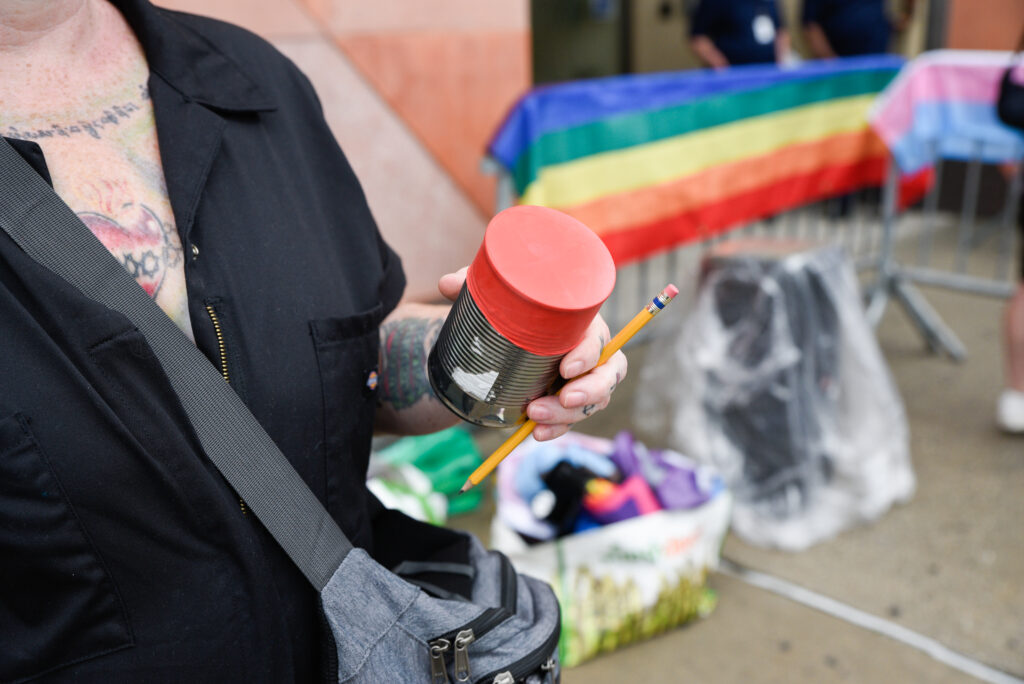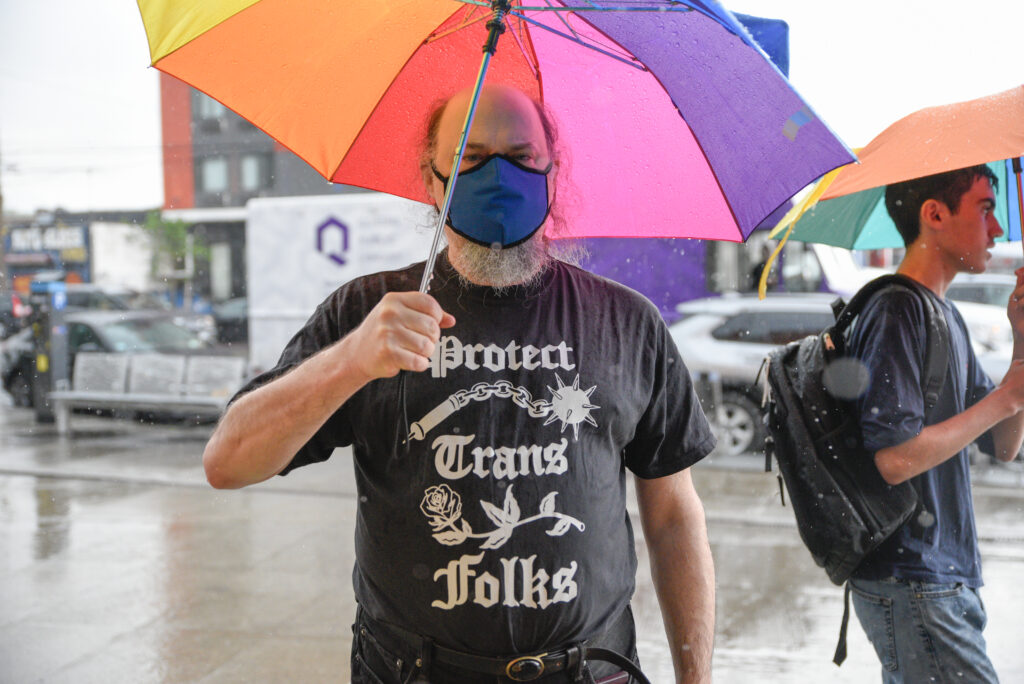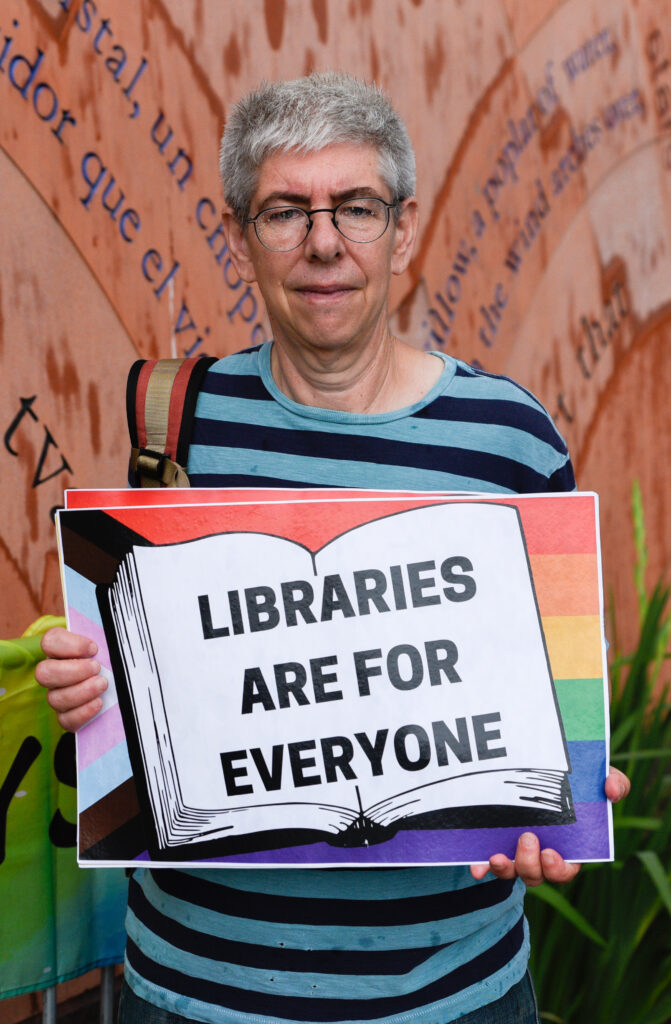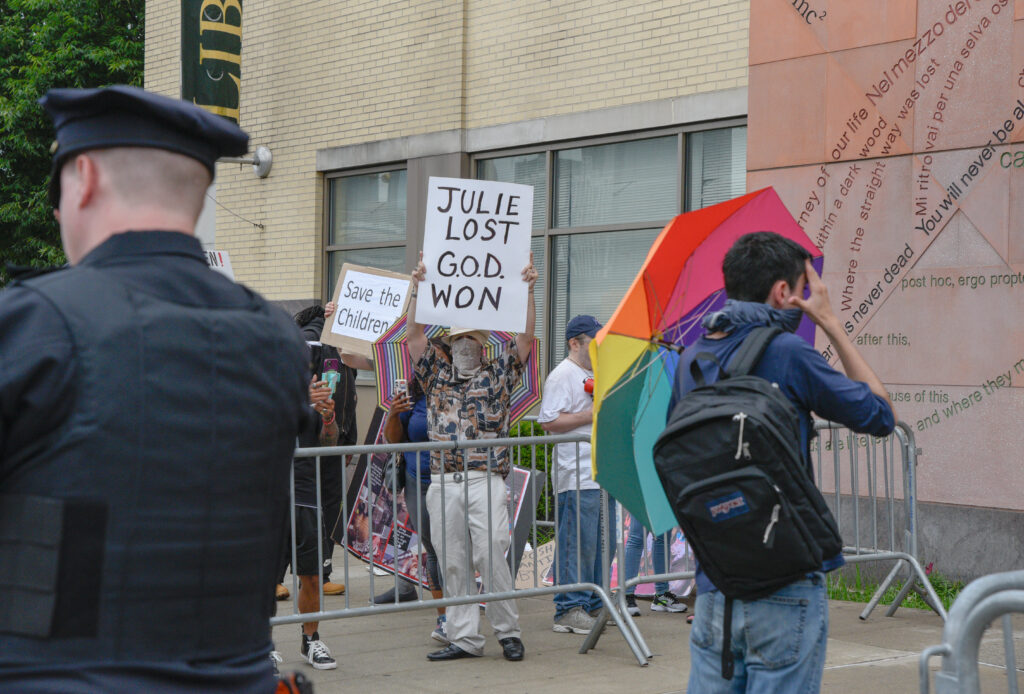Shower Power Addresses Lack of Hygiene Resources for Migrants
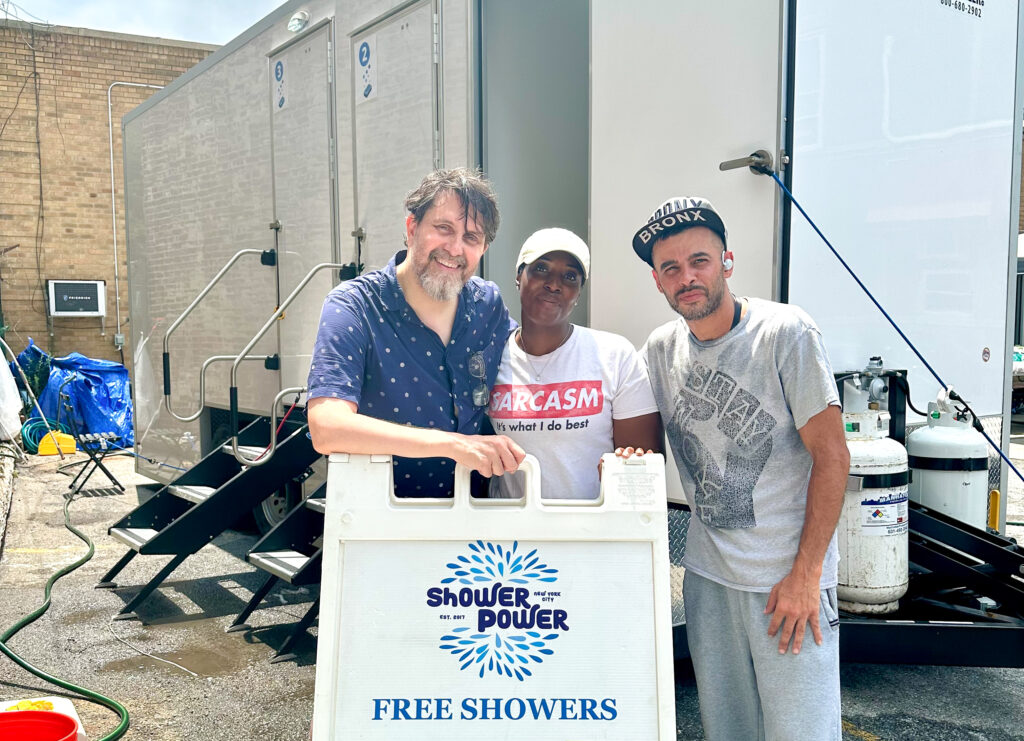
The Shower Power team is establishing themselves in Queens at a new location in Ridgewood.
By Iryna Shkurhan | ishkurhan@queensledger.com
While many organizations are tackling food insecurity, Shower Power is one of the few providing proper hygiene resources to the city’s most vulnerable one shower at a time.
Since 2017, the nonprofit has facilitated over 5,000 showers to individuals in need through their mobile shower trailers. They have also distributed over 25,000 personal care kits stuffed with necessary toiletries such as toothpaste, deodorant and soap.
For the thousands of New Yorkers that sleep in a shelter, access to a shower may not be necessarily clean, private or even safe. And for those who sleep on the streets, taking a shower is almost impossible. With self care in mind, Shower Power has been stepping in to provide hygiene resources, and friendship, to anyone in transition to permanent housing.
“Hunger is a major concern, but there’s more to a person. There’s more to their needs, and a lot of places don’t address that,” said Chantal Wallace, a Jamaica native, who joined the organization in 2021.
Before heading into a freshly cleaned, and ultra private shower stall, a team member hands visitors a freshly laundered towel and a personal caddy filled with cups of toiletries that they request. New socks, underwear and shirts are also offered up, and gladly accepted by most.
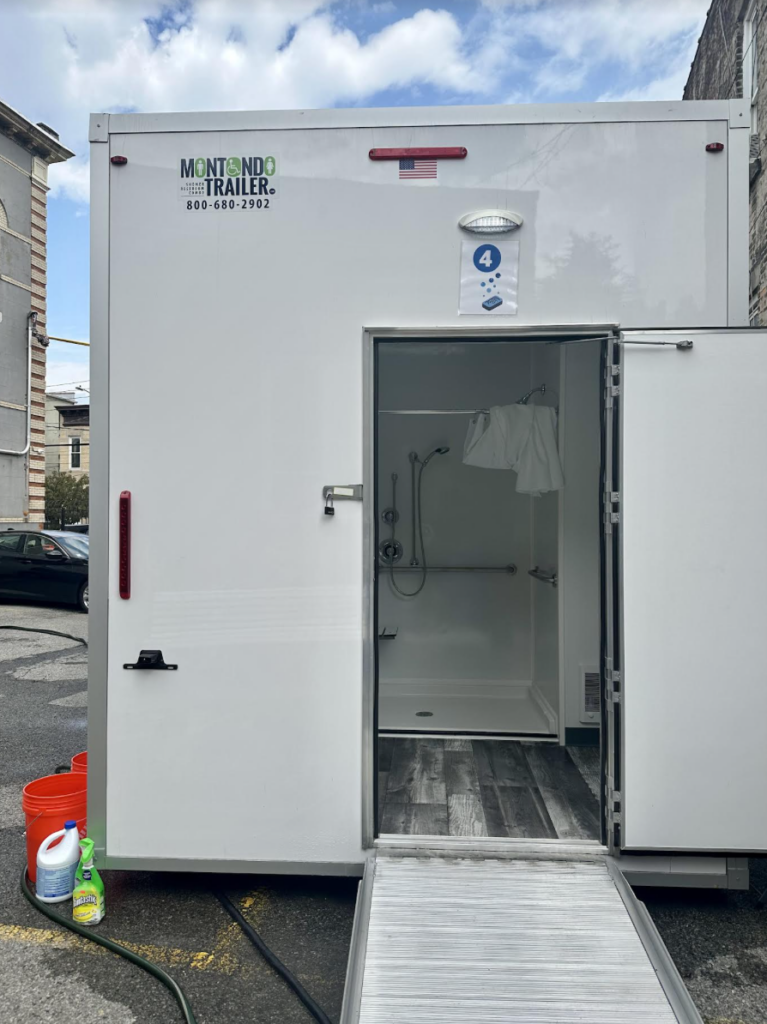
The shower trailer, and parking lot where it’s located, is ADA accessible.
The city’s homeless shelter population ballooned dramatically in 2022 and reached levels unseen since the Great Depression. Experts attribute the dire crisis to a lack of affordable housing and higher rates of serious mental illness, both of which worsened following the pandemic. Since last spring, 90,000 asylum seekers have arrived in the city and ensued an ongoing struggle to provide adequate housing and resources.
For its fourth season, which typically lasts eight months, Shower Power landed in Queens for the first time after solely being based in Manhattan. For now, they’re open three days a week in Ridgewood from 10 a.m. to 1 p.m. until cold weather will force them to end the season. Last year, they provided free showers up until the second week of November.
Tucked away in the parking lot of Ridgewood Presbyterian Church, the unmarked white shower trailer unassumingly fits three shower rooms with separate entrances, and one larger wheelchair accessible room. These types of trailers have been used in disaster relief, as well as summer camps and music festivals.
Richard Vernon, the Executive Director of Shower Power for the past year, says that it was a priority to secure a location that was ADA compliant and easily accessible for those in wheelchairs. The church on 70th Ave, with a ramp from the sidewalk leading to the parking lot, fit the bill.
Dan DeBrucker, the Parish Associate for Community Engagement at Ridgewood Presbyterian Church, heard about their need for a new location through the Supportive Housing Network. The church invited them to use the lot, along with water and electricity to make the shower trailer functional.
Before moving to Ridgewood two years ago, DeBrucker was a social worker that focused on addressing homelessness and a lack of affordable housing in the Syracuse area. He is also the National Organizer at the Presbyterian Network to End Homelessness.
“As the community tells us what they’re looking for, we basically don’t say no,” said DeBrucker, who also serves on Community Board 5. “Our best commodity is that we have space.”
When the trailers were stationed in Manhattan, which has a larger concentration of homeless individuals than outer boroughs, they had no issue attracting people. Some days they would even have to turn away shower seekers after serving around 90 people in a single day. But since coming to Queens several weeks ago, they have only had the opportunity to provide a handful of showers.
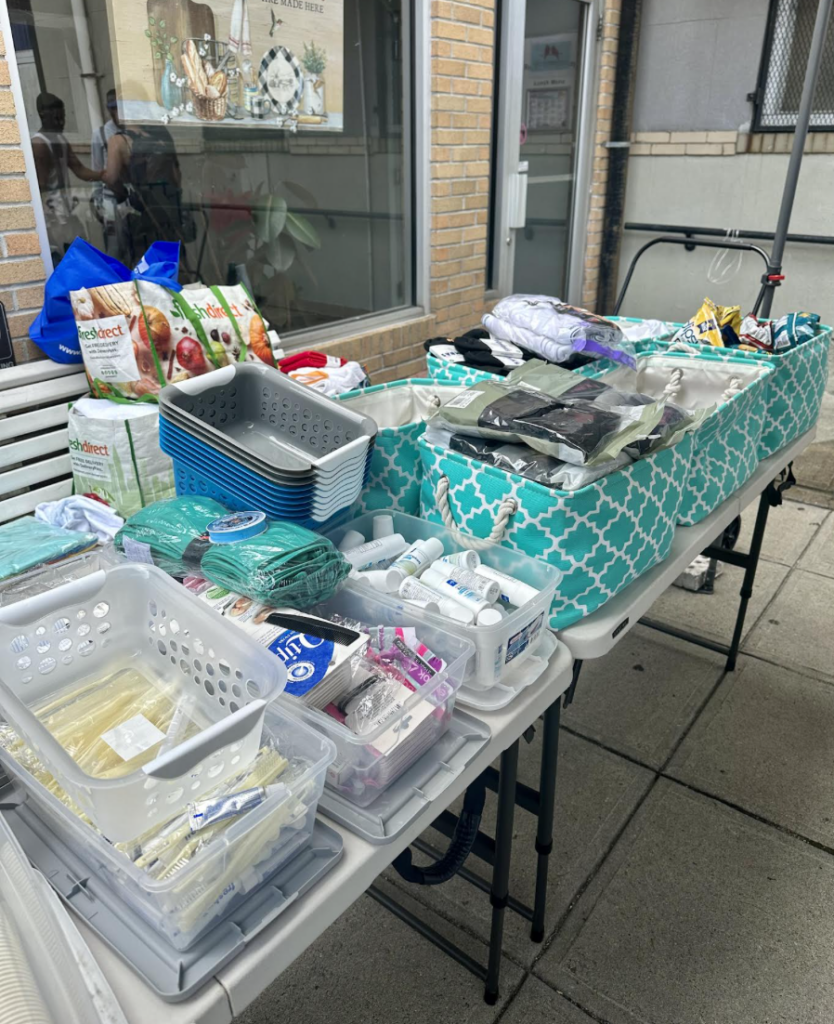
The nonprofit provides various free toiletries, as well as new socks and underwear to visitors.
“It’s still in the very early days,” said Vernon, who previously worked in disaster preparedness and recovery with The Salvation Army. “It’s not it’s not like setting up in a busy part of Manhattan. It’s going to take a little bit longer.”
“It always starts like that. But then once that first group comes, then it’s just flooded,” added Luis Melindez, who has been working with Shower Power since 2018.
The team agrees word of mouth has been the most effective way of bringing in the people that need their services the most, and turning them into regulars.
“In this particular area, we’ve been just going everywhere. Any business we see, any place we may see someone that looks like they’re in need of our services,” said Wallace, who oversees community outreach. “We’ve just been going all around handing out cards, flyers, talking to people and just getting the word out that we’re here and we’re looking for people to come.”
But on Friday morning, a group of a dozen migrants from a shelter in Brooklyn walked through the gates of the church’s parking lot led by a volunteer. With lit up faces, the Shower Power team sprang into action.
While the volunteer took down names, Wallace started pumping various toiletries into disposable cups to fill up the caddies. Melindez guided the men to their private showers and kept track of their time, before cleaning the stall for the next person. Vernon went on the hunt for extra plastic containers where the migrants could store their personal belongings while showing.
It was a rush that the Shower Power team was hoping for after weeks of low turnout at the new location.
The migrant men have been sleeping in a temporary shelter at Stockton St. in Bushwick since arriving in the city the last week of June. They say that the location has no showers available to use, and barely functioning bathrooms.
Since arriving in the city, the men have only been able to take showers at a nearby public pool. But some say that they feel uncomfortable using the showers there out of necessity, instead of related to recreational visits like others. The pool is also located several blocks away from the shelter.
Souleimane, a 33-year old who arrived in New York from Mauritania last month, shared that his shower in the trailer was great, and much more comfortable than the public pool’s communal showers where he has to pretend he is there recreationally. Prior to his visit to Ridgewood, he was only able to take two showers arriving in the city, and both were at the pool.
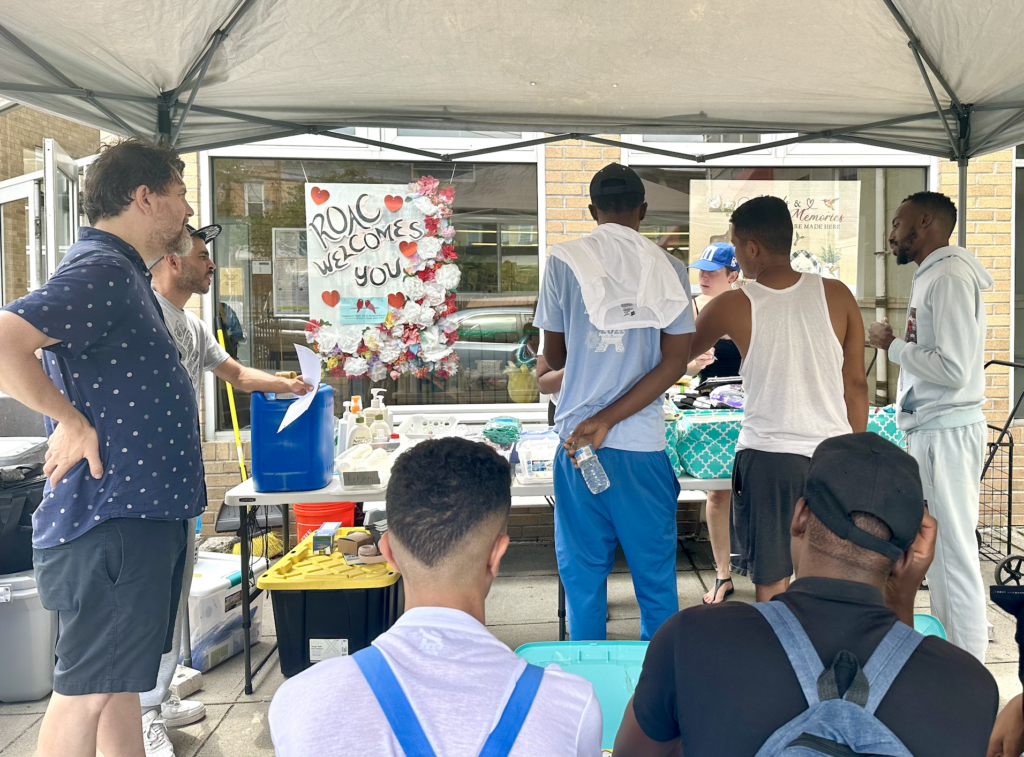
The migrants signed in and selected their toiletries before taking a private shower in the trailer.
“If I knew all your names, I would thank you individually,” said Souleimane through the French speaking volunteer that escorted the group to the site on public transportation. “I would feel comfortable coming here to shower everyday.”
The mutual aid group volunteer, who did not want to be named, is a French teacher during the school year. With some extra time on her hands in the summer, she guided the group to the site since many are still unfamiliar with the city and need translation assistance.
Sidi, another recent migrant whose journey to New York from Mauritania totaled twelve days, said the living arrangement at the shelter “would be much better” if showers were available on site. While he says that he is grateful for a place to sleep and food to eat, not having a place to maintain proper hygiene is “not a good situation.”
“You know that when you come here, you’re going to be treated well and consistently,” said Vernon. “People show up time after time. Then friendships form, which is part of the idea.”
The Shower Power team says that their organization is about more than just providing showers and toiletries, creating a sense of community where people can return, whether they need the shower or not, is just as important.
“We get attached to the people that come, and it’s not a job for me. We do have relationships with these people outside of our work hours,” said Wallace. “We check on them. We call them, you know the ones that have access to phones, and we make sure they’re doing well.”
“You get to know their names, their backstories and sometimes they don’t even come here for a shower,” she added. “They just want an ear, and we’re here to provide that for them too, while working of course in serving the ones that do need to take a shower.”
Establishing the necessary trust with the community can be an issue initially. Showering in itself is a vulnerable experience, even more so in public when you need strangers to assist you. And being homeless adds another layer of vulnerability that makes one more likely to experience traumatic events.
“A lot of them are very fearful when we approach them, because of the experiences that they may have had in shelters, or even just people not being nice to them on the streets,” said Wallace. “They’re almost frightful to come, you know, use our services, which is very unfortunate.”
The issue is especially prevalent among homeless women. Wallace recalled that women who would stop by the trailer when it was in Manhattan would feel more comfortable waiting for all the men to finish showering, despite having access to a private shower behind a closed door.
A study conducted in Florida found that 78 percent of homeless women were subjected to rape, physical assault, and/or stalking at some point in their lifetimes. They also found that physical or sexual assault leads to longer periods of homelessness for victims.
“That’s why a lot of people don’t like to go into shelters, they’d rather stay outside, as sad as it is,” said Melindez, who heard about shower advocacy when he was coming out of a shelter in Brooklyn three years ago.
Ideally, Shower Power hopes to be able to provide showers year round from a host site that already has a shower space that is underutilized. And their two existing trailers would come in handy during the summer months, when people generally want to shower more.
“Even now having two trailers is just such a big feat for us. Being able to operate in two locations at a time is amazing because the need is everywhere,” said Melindez. “This is something that needs to be in every borough, with several locations. It’s only up from here.”


